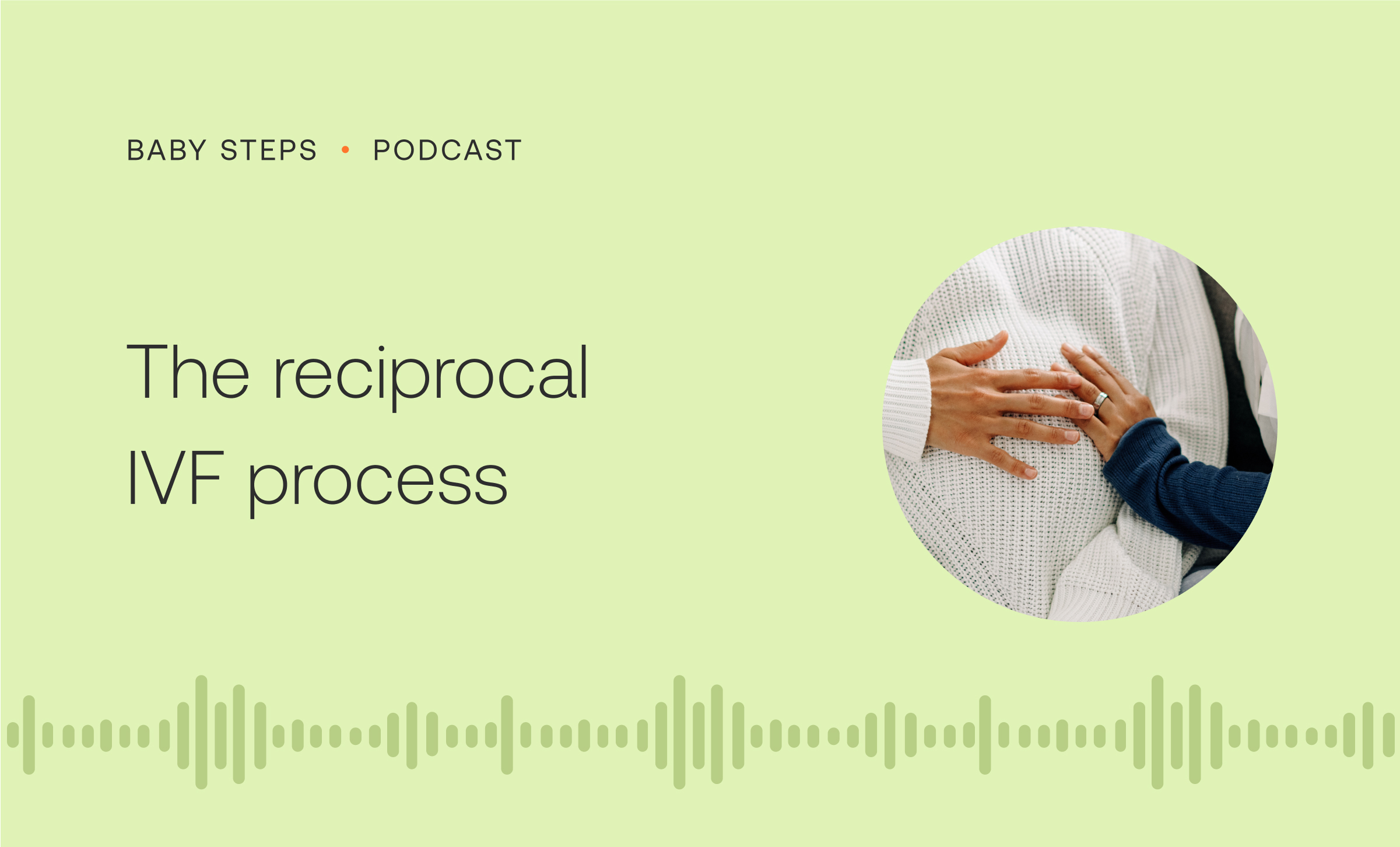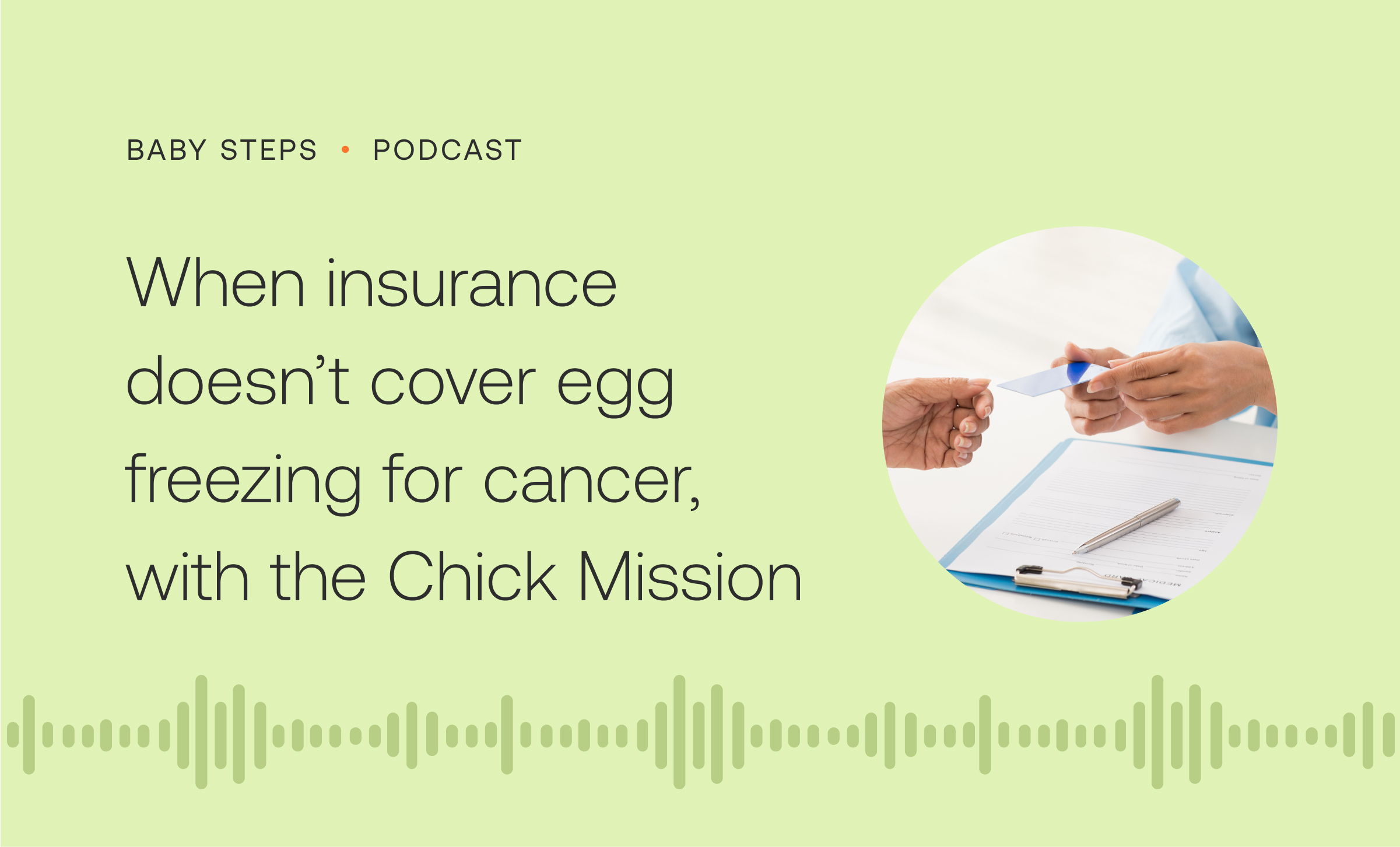Every decade is marked by different milestones and transitions. Your 30s can present a new set of challenges — especially as you balance personal and professional goals. This could also include making more decisions about your fertility.
Because fertility begins to slowly decline with age, some people start thinking more seriously about their family-forming goals in their 30s. Ovaries have a finite number of eggs and as people age, the number and quality of eggs decrease, declining more rapidly in the mid-30s. While sperm production slows with age, this decline is much more gradual. And while infertility becomes more common as individuals move through their 30s, many people are still able to start or grow their families during this decade, both with and without fertility care. In fact, women in their 30s in the U.S. now have a higher birth rate than women in their 20s.
Understanding your fertility health
Fertility is a part of overall health, so it’s important to have a balanced diet, reduce stress, and reach or maintain a healthy weight. Menstrual cycles can also reveal important information about fertility. When a person’s menstrual cycle is regular and consistent (occurring approximately every 21-35 days), it suggests that hormones are in balance and that ovulation is occurring every month. Irregular menstrual cycles, on the other hand, could be a sign of underlying health issues like endometriosis or polycystic ovary syndrome (PCOS).
Menstrual cycle tracking is one helpful way to determine regularity and consistency. Whether a person chooses to track their cycle using a calendar or an app, adopting this routine can lead to a better understanding of one’s cycle and may be an empowering way to gain insight into hormonal reproductive health.
Personal medical and family history can also provide additional insight into a person’s reproductive and overall health. Some conditions can impact the function of reproductive organs, potentially resulting in fertility challenges. These include:
- Endometriosis
- PCOS
- Premature ovarian failure or primary ovarian insufficiency
- Uterine fibroids
- Structural differences
- Erectile or ejaculatory dysfunction
- Testicular dysfunction
Other conditions like diabetes, high blood pressure, autoimmune diseases (like thyroid disorders), and genetic disorders (like cystic fibrosis) can also affect fertility. Individuals who have been diagnosed with any of these medical conditions or with a family history of these issues are encouraged to work with their healthcare provider. If fertility is also a concern, healthcare providers can help guide the conversation around family-forming goals and offer helpful resources.
Chances of getting pregnant
Despite headlines and health myths, a person in their 30s has a relatively high chance of getting pregnant. A healthy 30-year-old has a 20% chance of getting pregnant in a given menstrual cycle, compared to an individual over 40 who has less than a 5% chance. Because egg quantity and quality decline, there are additional considerations to make if an individual is trying to get pregnant in their mid to late 30s, but it’s not impossible. In fact, in the U.S., more women over 35 are giving birth, and the fertility rate for women ages 35-39 has increased by 67% over the past 30 years.
Understanding infertility
It’s estimated that 48 million heterosexual couples and 186 million individuals live with infertility worldwide — and infertility can affect people of all ages. The clinical definition of infertility, however, does change with age.
Infertility is defined as:
- Not being able to become pregnant after one year of regular, unprotected intercourse under the age of 35
or
- Not being able to become pregnant after six months if the individual trying to get pregnant is older than 35
It’s important to remember that these are guidelines to help set expectations of a general timeframe. Every person and every couple is different, so it’s best to speak to a healthcare provider about individual health history and goals.
For individuals with a known medical condition that impacts fertility or for those who have been trying to get pregnant for 6-12 months, further testing may be necessary to determine reproductive options. Fertility tests may include:
- Blood tests: To measure hormone levels related to reproductive processes like ovulation
- Semen analysis: To assess sperm count and other sperm parameters like concentration, motility, and shape
- Ovarian reserve testing: To assess the number of eggs in the ovaries
- Ultrasounds and other imaging tests: To check possible issues with anatomy
These tests can help a healthcare provider diagnose fertility challenges and determine the best treatment options. Despite popular belief, in vitro fertilization (IVF) may not be the first line of treatment. IVF is a procedure in which retrieved eggs are fertilized by sperm in a lab and then transferred into the uterus as an embryo and is often costly and invasive. Other medications and procedures may be considered first, including:
- Ovulation tracking: This can help pinpoint when a person releases a mature egg that is ready to be fertilized. Tracking options include ovulation test strips, wearable ovulation trackers, cycle-tracking apps, or even a simple calendar if your cycle is regular and predictable.
- Timed intercourse with ovulation induction: Ovulation-inducing medications work by modifying the body’s production of hormones that trigger ovulation. This may be recommended with timed intercourse or intrauterine insemination (IUI).
- IUI: This is a procedure where prepared sperm are placed directly into the uterus during ovulation. This increases the chances for more sperm to potentially reach mature eggs.
For some, IVF may be the best option, but it’s important for individuals to discuss with a healthcare provider what treatment is best for them.
How Carrot can help
For those planning to start or grow their family through intercourse in their 30s, age does play an important role, but it’s not everything. Other factors such as relationships, career, and finances may also influence family-forming decisions. Whether you want to learn more about your fertility, are ready to start your family, or are exploring options for the future, Carrot has resources to support you.
- Expert-produced articles: Explore our library of articles on topics like PCOS, ovulation tracking, IUI, and more.
- Vetted global network of providers: Find a provider near you with our global network of 3,800+ clinics around the world.
- Unlimited expert chats: Schedule virtual chats with experts like reproductive endocrinologists, OB/GYNs, urologists, dieticians, and more who can answer your questions and provide guidance.
If you’re a Carrot member, sign in to your Carrot account and explore your resources.













